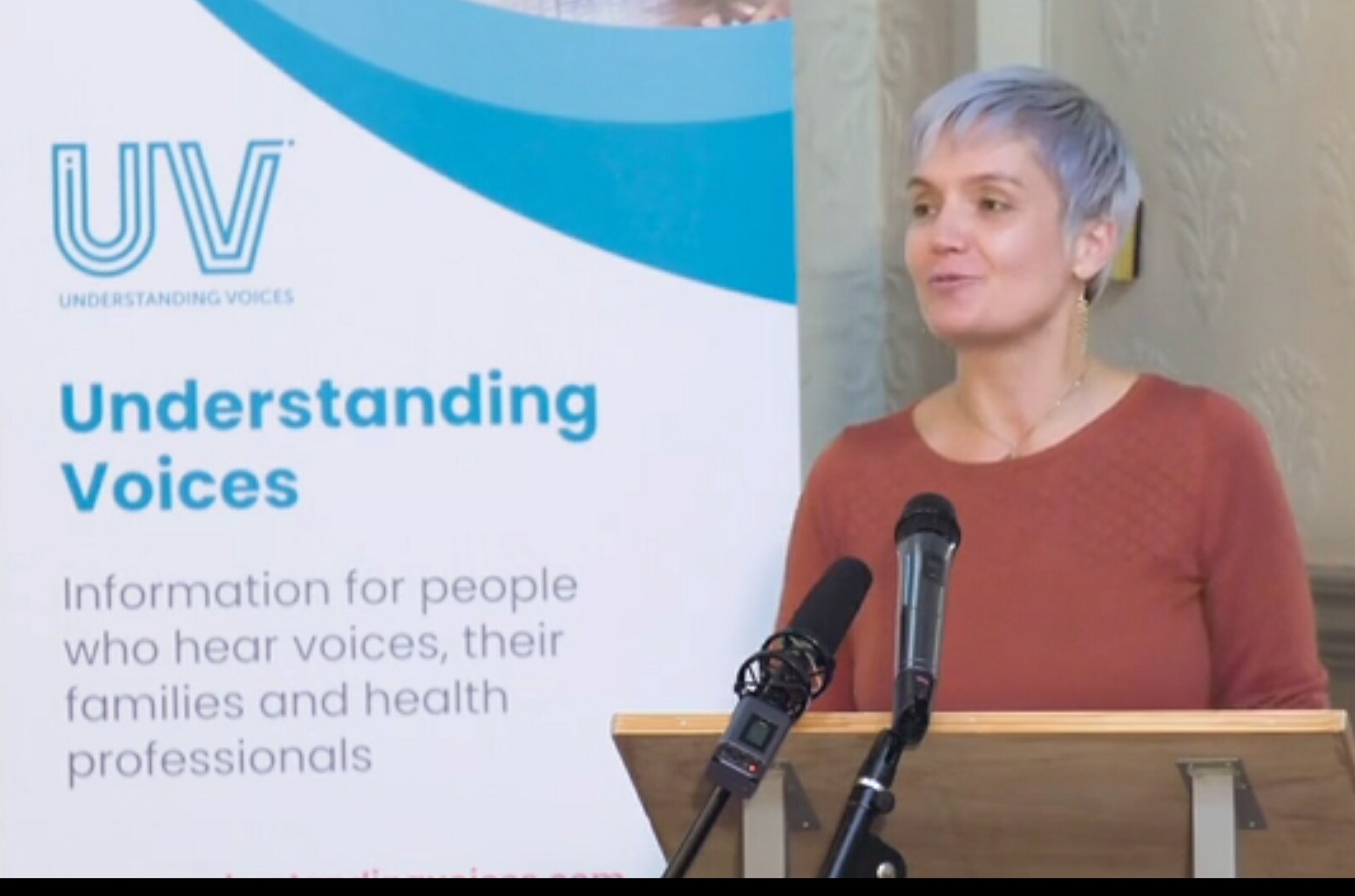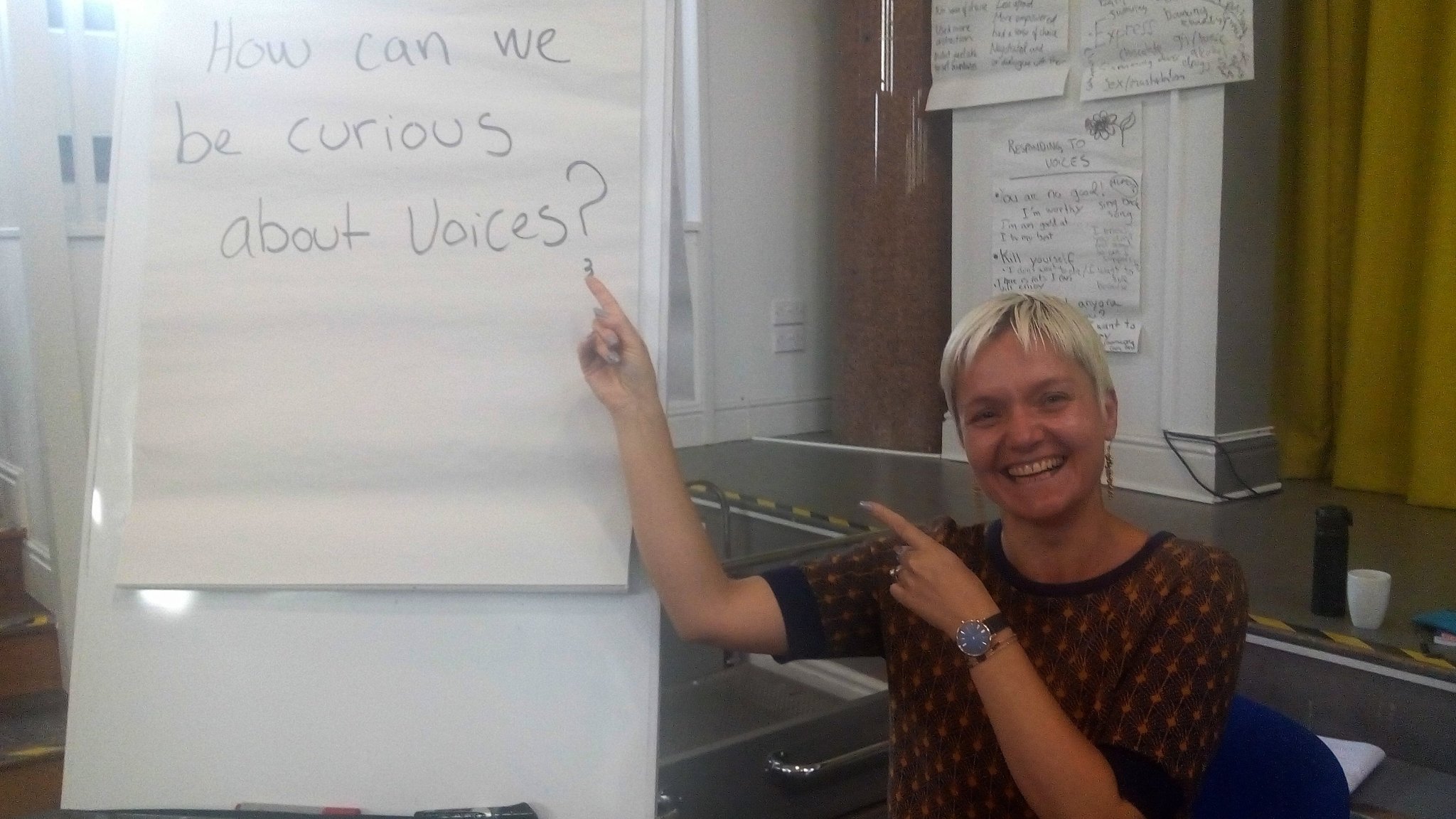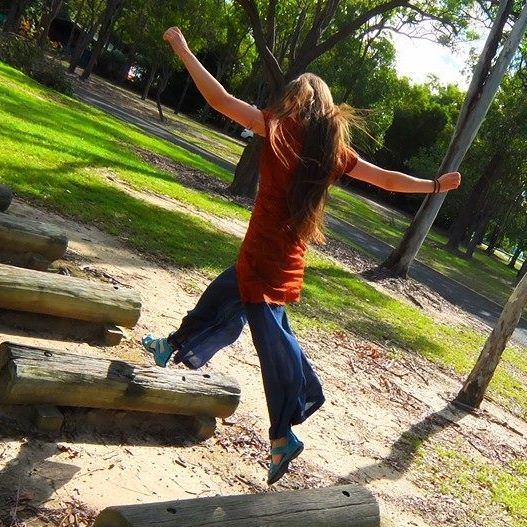Hearing Voices Iceland eru landssamtök þeirra sem heyra raddir, sjá sýnir eða lifa með öðrum óhefðbundnum skynjunum og áhugafólk um málefni þessa hóps. Þau héldu netviðburð, „Listening hearts“ í tilefni af alþjóðlegum degi raddheyrara 14. september 2020 í samstarfi við félög og fólk í Bandaríkjunum, Bretlandi, Danmörku, Frakklandi og víðar um heim allan. Það að lifa með óhefðbundnum skynjunum er partur af mannlegum breytileika og miklu algengara en fólk er almennt meðvitað um. Elisabeth Svanholmer var ein þeirra sem tók til máls á viðburðinum og deildi eigin reynslu. Við höfum fengið leyfi til að birta hennar erindi sem fjallar um jafnréttismál, það að vera jafningi, mannréttindabaráttu, geðið og raddir. Njótið ^_^

EQUALITY INSIDE OUT
I think a lot about how I can be part of creating more equality in the world. But when I get into it I actually find equality difficult to get my head around and hard work to practice.
Theoretically I believe in equality but it becomes much more complicated when I move to my feelings and thoughts and when I engage with other people in real time.
For instance I struggle to identify what equality feels like and what makes it happen.
I know I don’t always notice or appreciate it when it is there.
On the other hand I find it very easy to name situations where I did not experience being approached like an equal
I can identify what other people did wrong and it goes round and round in my head for days.
I have many memories of being at social events and feeling like nobody made an effort to engage with me;
people not acknowledging my presence, talking over me, interrupting me,
or openly dismissing me if they know I have used mental health services
or when they realise that I am not ‘a professional’,
people wanting to give me advice about how to ‘get better’ when I have not asked for this
I don’t like it when I experience these things, I feel sad and confused
Yet I do believe in myself as an equal.
I am uniquely me but I have equal value to everyone else; the things I experience are valid experiences.
I have something to contribute to this world and my need for respect, love, self-expression, safety and community are valid needs.
But even though I believe this I still end up positioning myself as superior or inferior to other people. I don’t behave like an equal. I compare and rank myself and at times I behave submissively or I can become grandiose.
Contantly trying to figure out who is more important and who’s needs are more valid?
I feel like I am up against a deeply rooted cultural preference for hierarchy. Within me and around me.
For status, resources and opportunities to be equally available to everyone, most of us would have to change how we think, how we understand things and how we organise our societies. 
The systems and institutions that we are caught in are based on hierarchical reasoning – some people are better than others, harder working, more talented, more intelligent and therefore more deserving of status and resources.
Hierarchical thinking is in our language – the way we divide everything into good or bad. The way we get excited about things like champions, award winners, role models, experts, expertise, success, achievements, being brave, following your dream, being popular, being an inspiration and so on
And it is in the way we look for who to blame, who to punish, who is not worth our time and who is a nuisance.
It’s in the way we look to dismiss, ridicule and otherise people who are painfully different to us, in their beliefs or ways of living.
Its in the way we get in to ‘them and us’ thinking.
The bigger picture overwhelms me and I struggle to see what I can do about all this…
I don’t want to feel powerless – I want to feel able to do something.
Something that works for me in my life.
If you look at status, resources and opportunities I am not equal to most of my friends or even my partner.
I am not as well educated as most of my friends.
I have been on benefits most of my adult life and receive a disability pension now.
Most of my family is a weird mixture of hippies and working class and no one has a university degree, a stable income or own any property.
But in my closest relationships I feel known and loved. I experience being appreciated for my being and not for anything I do or because of my background or achievements – or lack thereof.
I feel able to share the space, co-create an environment of mutuality and harmony as well as allowing individual self-expression that is not in competition with the other person.
It is an exchange between us that happens just as much non-verbally – through body language and actions -as it happens through the words we speak.
And I want to actively create more space for experiences like this in my life.
I try to be curious, humble and honest when I meet others in the hope to experience a sense of connection.
Finding ways to exchange views and ideas with mutual respect so that it becomes a shared journey of discovery rather than a battle for who is right.
I find I need to bring self-awareness and groundedness. I need to be patient and calm
and I need to make sure I feel secure enough in myself to be open to the strangeness of other people; the ways in which they are different to me, their ways of seeing things and doing things – maybe even their way of talking – which might challenge my ideals and values.
In some situation equal relating is just too advanced and people feel uncertain and anxious around me.
So in order to look after myself I might decide to honour the collective need for hierarchy.
I can adapt to an inferior position as well as take the lead – however I often find that afterwards I don’t feel satisfied and I give myself a hard time. I can feel resentful if I let other people lead and I feel frustrated and scared if people defer to me.
I feel much more at ease when I can share decision making and responsibilities with other people.
And I feel more like an equal when I have choices.
 And what about voices?
And what about voices?
I sometimes hear that equality is about treating everyone the same and that kindness is about treating others like you want to be treated.
But I don’t know if I feel able to honour diversity if I have to approach everyone in the same way or how I would like to be approached.
I find that the voices I hear can be pretty persistent teachers and in engaging with them I am usually forced to try and practice what I preach.
They know me, they know my intentions and they will test and challenge me.
I hear several voices and they are all very different from each other in character and in how they express themselves.
In relating to them I am constantly learning about myself and about navigating relationships.
I need to approach the voices in different ways in order to have good relationships with them.
One likes banter, swearing and high energy interactions but another one will feel more comfortable with just quietly spending time together.
In order to engage with each of them I have to be creative and flexible and accept my limitations.
I have my biases about who I like to talk to and who I trust more and so I don’t share my time equally between them. Some feel very hurt by this whereas others don’t mind at all…
One thing they all seem to appreciate though is being listened to.
So I asked them what their thoughts were on theme of this talk.
One says that I am neither powerless to change things nor powerful enough to make the world how I want it to be.
One says that equality might not be all it’s cracked up to be and that I need to be careful of the choices I make and action I take in the name of equality.
One says that it is important that I take responsibility for how I perceive things and how I then respond and relate.
One says that change happens in relationships through the way we choose to relate to each other.
One says change is weird and wonky, not obvious to the rational mind but something to be felt in our bones.






